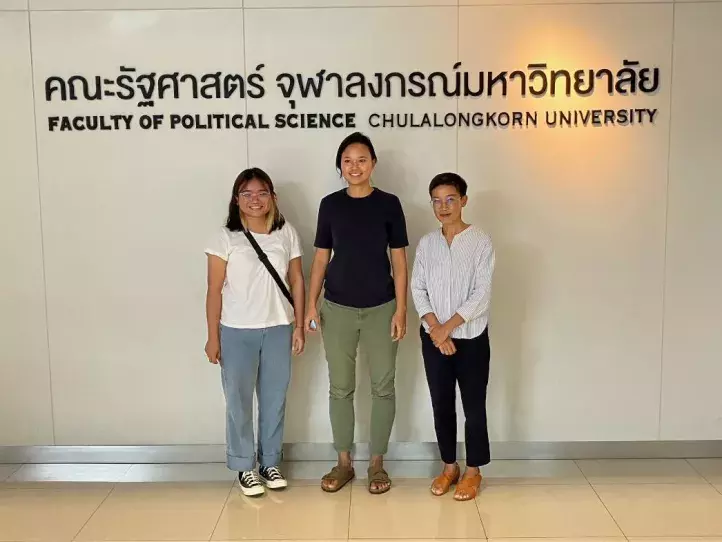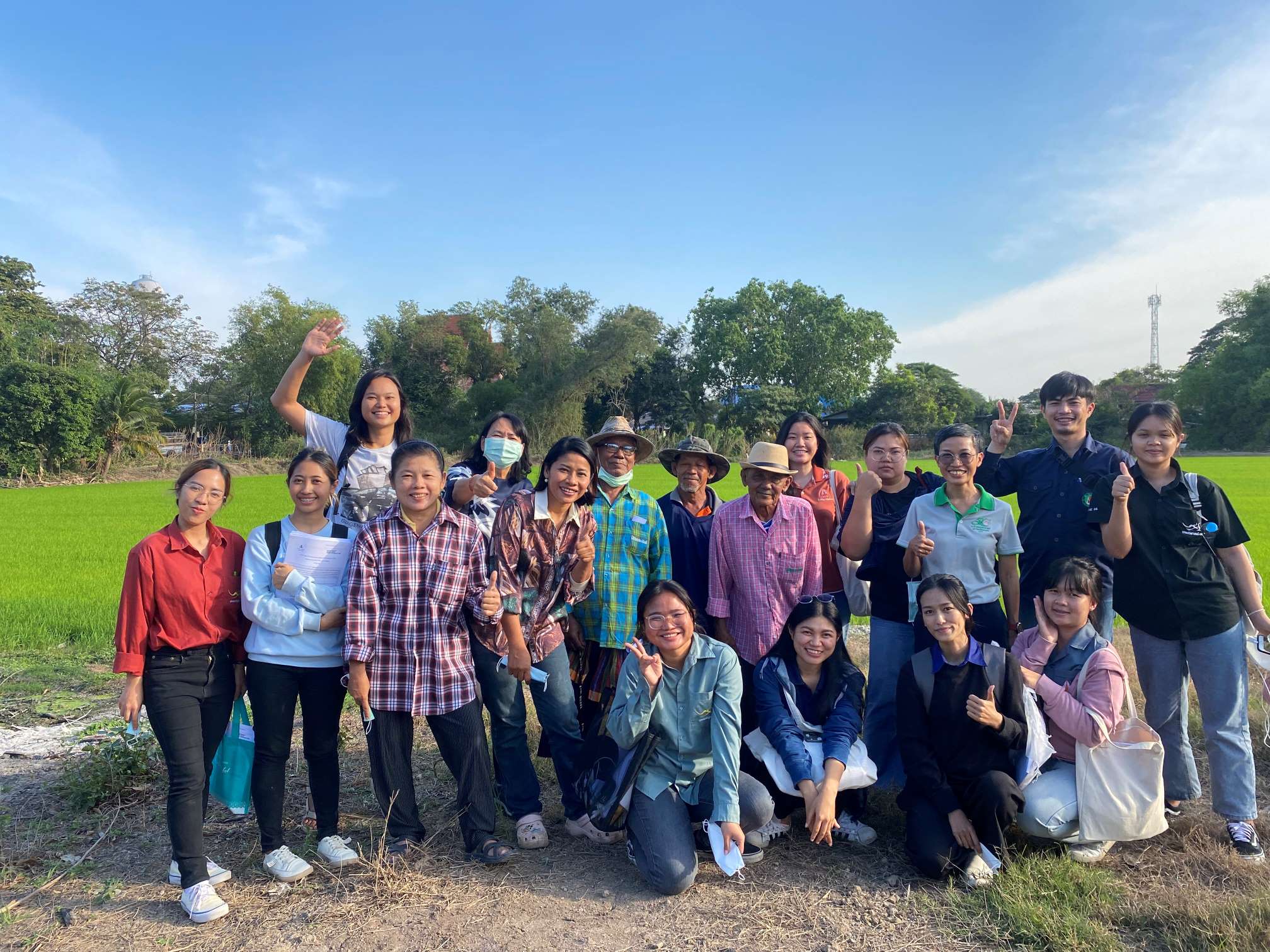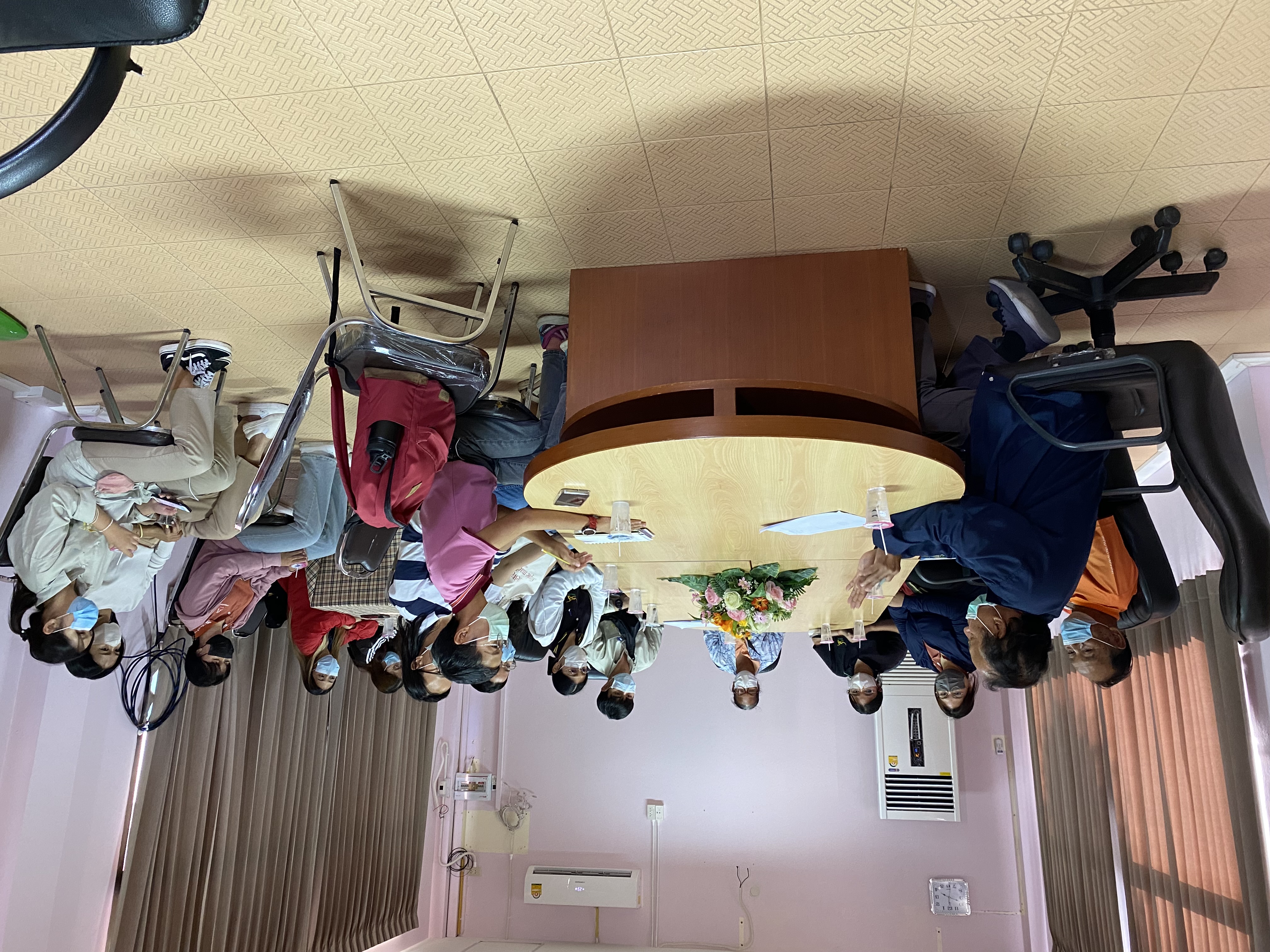Error message

OFFICE/DEPARTMENT
From left to right: Tansuda Jinai (1st year graduate student, Khon Kaen University); Phanwin Yokying (East-West Center); Arunee Promkhambut (Assistant Professor, Khon Kaen University).
Project Objectives
This project brings together an expanding and diverse community of professors, scholars, and students across various social science disciplines in Thailand. Our multi-disciplinary teams strive to strengthen the capacity of Thai students, both undergraduate and graduate, in conducting original and hands-on research using both qualitative and qualitative approaches to generate new insights on the implications of climate shocks on rice farming and labor allocation in provinces situated along the Chao Praya River in Central Thailand. Currently our participating universities include Khonkean University and Kasetsart University. Participation in this project deepens students’ understanding these key policy issues and increases their capacity to provide evidence-based policy recommendations. To foster meaningful and rich research collaboration, this project aims to also enhance students’ critical thinking and problem-solving skills along with their ability to formulate novel ideas, discuss, and share their thoughts with their peers and professors. We also offer unique domestic and rare international opportunities for participating professors and students to broaden their academic networks, strengthen their knowledge about other Southeast Asian countries, and improve their English language proficiency. With support from Henry Luce Foundation, our work in Thailand is providing a fundamental foundation to help strengthen the country’s quality of educators and future workforce.

Project Status Summary
In Year 1, the project implemented workshops and fieldwork in partnership with local universities, community leaders, local government agencies, and rice farmers living in five provinces situated along Chao Phraya River. The primary goal was to advance our understanding with regards to the implications of climate variability and change on rice farming in Thailand. In Year 2, we will be organizing two multidisciplinary and collaborative workshops. Our first workshop is entitled “Workshop on Quantitative Research Methods: Labor, Agriculture, Climate Variability.” This workshop provides comprehensive and rigorous training to undergraduate and graduate students on the essentials of conducting quality quantitative research. Topics include formulation of research questions, literature review, sample section, survey design, data collection and analysis, along with research writing and presentation. Our second workshop, “Learning-by-Doing Research Workshop,” allows students to apply knowledge and skills acquired from our previous workshop to design and execute their individual mini research projects within the topics of labor, agriculture, and/or climate variability. Towards the end of the workshop, each student will present their research to their peers and professors. Participation in the workshops will strengthen students’ foundational skills in conducting high-quality and policy-relevant research. Stay tuned for the exciting activities planned for Year 3!

From left to right: Tansuda Jinai (1st year graduate student, Khon Kaen University); Phanwin Yokying (East-West Center); Arunee Promkhambut (Assistant Professor, Khon Kaen University).
Project Objectives
This project brings together an expanding and diverse community of professors, scholars, and students across various social science disciplines in Thailand. Our multi-disciplinary teams strive to strengthen the capacity of Thai students, both undergraduate and graduate, in conducting original and hands-on research using both qualitative and qualitative approaches to generate new insights on the implications of climate shocks on rice farming and labor allocation in provinces situated along the Chao Praya River in Central Thailand. Currently our participating universities include Khonkean University and Kasetsart University. Participation in this project deepens students’ understanding these key policy issues and increases their capacity to provide evidence-based policy recommendations. To foster meaningful and rich research collaboration, this project aims to also enhance students’ critical thinking and problem-solving skills along with their ability to formulate novel ideas, discuss, and share their thoughts with their peers and professors. We also offer unique domestic and rare international opportunities for participating professors and students to broaden their academic networks, strengthen their knowledge about other Southeast Asian countries, and improve their English language proficiency. With support from Henry Luce Foundation, our work in Thailand is providing a fundamental foundation to help strengthen the country’s quality of educators and future workforce.

Project Status Summary
In Year 1, the project implemented workshops and fieldwork in partnership with local universities, community leaders, local government agencies, and rice farmers living in five provinces situated along Chao Phraya River. The primary goal was to advance our understanding with regards to the implications of climate variability and change on rice farming in Thailand. In Year 2, we will be organizing two multidisciplinary and collaborative workshops. Our first workshop is entitled “Workshop on Quantitative Research Methods: Labor, Agriculture, Climate Variability.” This workshop provides comprehensive and rigorous training to undergraduate and graduate students on the essentials of conducting quality quantitative research. Topics include formulation of research questions, literature review, sample section, survey design, data collection and analysis, along with research writing and presentation. Our second workshop, “Learning-by-Doing Research Workshop,” allows students to apply knowledge and skills acquired from our previous workshop to design and execute their individual mini research projects within the topics of labor, agriculture, and/or climate variability. Towards the end of the workshop, each student will present their research to their peers and professors. Participation in the workshops will strengthen students’ foundational skills in conducting high-quality and policy-relevant research. Stay tuned for the exciting activities planned for Year 3!


